With the COVID-19 pandemic sweeping across the globe, the payments and e-commerce landscapes are especially vulnerable right now to scammers preying on consumers with fake cures, unapproved treatments, and other unconventional products and services to treat the new coronavirus. These scams are not only detrimental to public health but also pose serious risks of chargebacks and regulatory scrutiny for payment processors supporting these transactions as well as for e-commerce platforms hosting these merchants.
Bogus Cures
Scammers thrive in environments wrought by panic and misinformation. Lack of access to testing and treatment for COVID-19 has only served to compound consumer fears and provide the perfect conditions in which to dupe vulnerable populations. The website below, for example, markets a COVID-19 vaccine it claims to be giving away for free, less the cost of shipping.
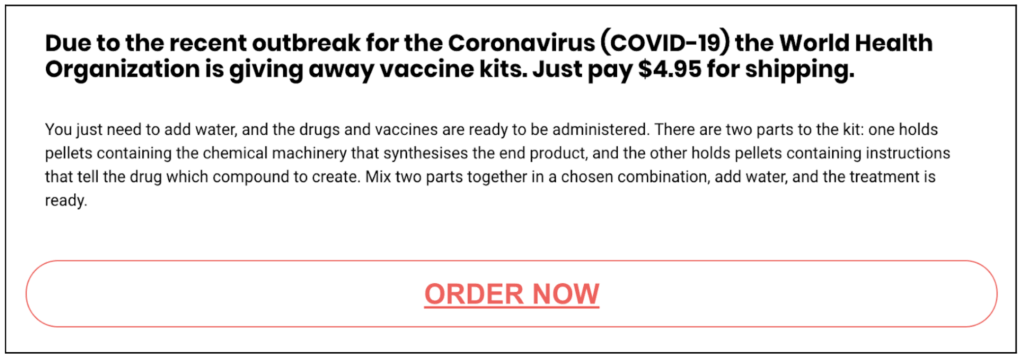
A scam offering free vaccines with strangely complex instructions for use
LegitScript has detected a significant surge over the past few weeks in these types of miracle cures often marketed alongside phony COVID-19 testing kits or protective gear such as N95 respirators, which are one of few masks approved for use in the prevention of coronavirus transmission.
In recent weeks, the FDA and FTC have worked jointly to issue warning letters to sellers offering unapproved products and services. A particular focus has been celebrity-endorsed products, such as televangelist Jim Bakker's Silver Sol Liquid, a colloidal silver product. Bakker received a warning letter for claiming on his television program, The Jim Bakker Show, that his product eliminated strains of the coronavirus.
Another subject of scrutiny has been Alex Jones, a far-right conspiracy theorist and publisher of the website InfoWars. Jones has marketed his toothpaste for the prevention of coronavirus, explaining on his radio show that his product "kills the whole SARS-corona family at point blank range."
Unapproved Treatments
In addition to fake cures, LegitScript has seen a spike in unapproved marketing for drugs and dietary supplements that have been identified as possible treatments for COVID-19. In particular, the antimalarial drug chloroquine, which was touted by the White House as a potential "game-changer" in the treatment of the novel coronavirus, has appeared as a prominent offering on e-commerce platforms and other websites.
For example, the rogue internet pharmacy pictured below, which is part of a network known to LegitScript, now prominently markets antimalarials for the treatment of coronavirus. The website typically markets drugs to treat erectile dysfunction.
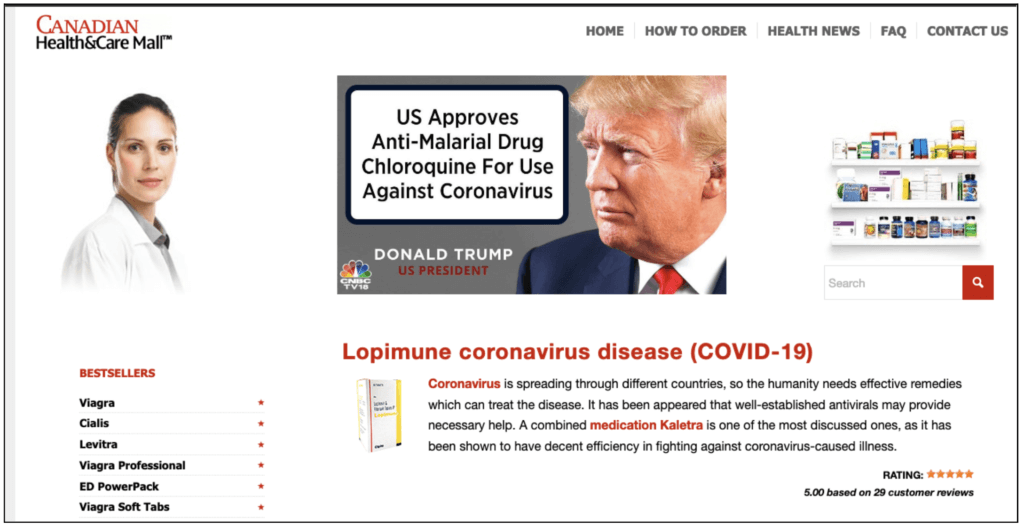
Antimalarials promoted on a rogue internet pharmacy that typically markets ED medication
Other prescription-only antiretrovirals and antibacterials, such as lopinavir, ritonavir, and azithromycin, are now also being marketed as potential COVID-19 treatments on various platforms.
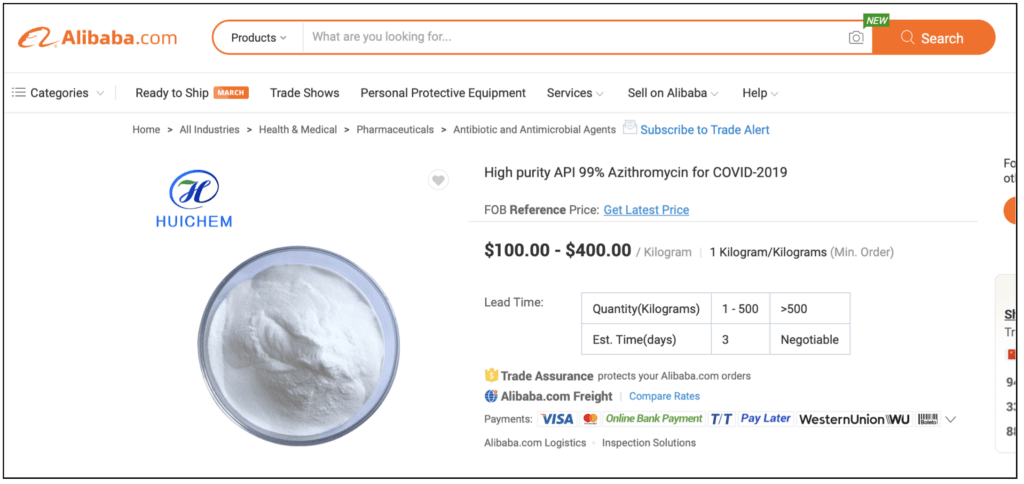
A vendor on the B2B platform Alibaba markets "Azithromycin for COVID-19."
Some everyday products, such as vitamin C, have also been marketed as treatments for COVID-19.

A vendor claims high doses of vitamin C will cure COVID-19.
Nondelivery Schemes
High demand for products frequently attracts scammers engaged in nondelivery, also known as 419 scams or advance-fee fraud. LegitScript has detected a rise in online complaints and negative reviews regarding many of these fake and unapproved products. The majority of these complaints stem from nondelivery issues, meaning a product is paid for but never delivered. See examples of consumer complaints below. Nondelivery schemes have a high risk of chargeback disputes.
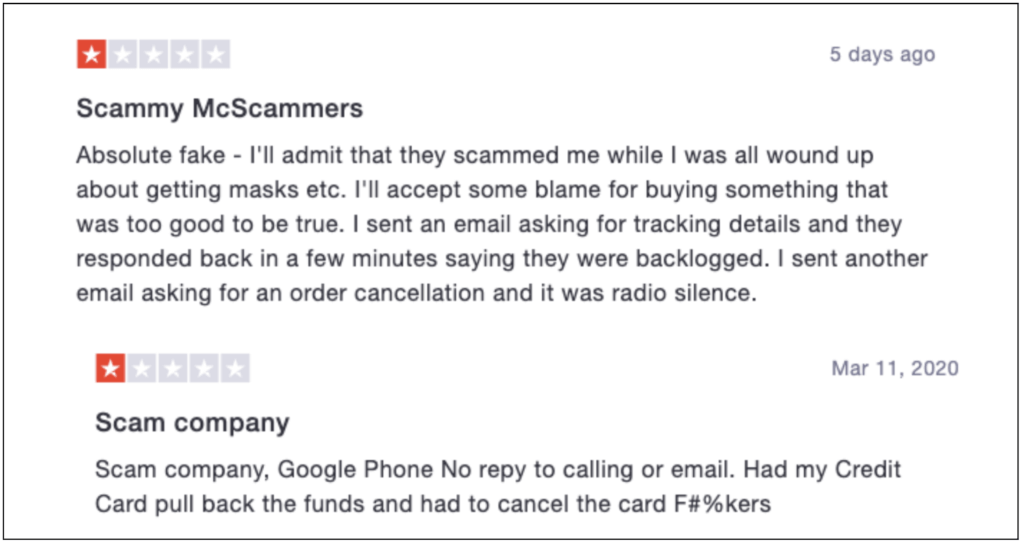
Consumers complain that the products they purchased to prevent against COVID-19 were never delivered.
Unconventional Treatments
Unapproved cures and treatments aren't limited to drugs, supplements, and other ingestibles. For example, the merchant below offered a product called a Corona Necklace Air Purifier. The product was described as providing "All Day Protection." The vendor has since been removed from the e-commerce platform.
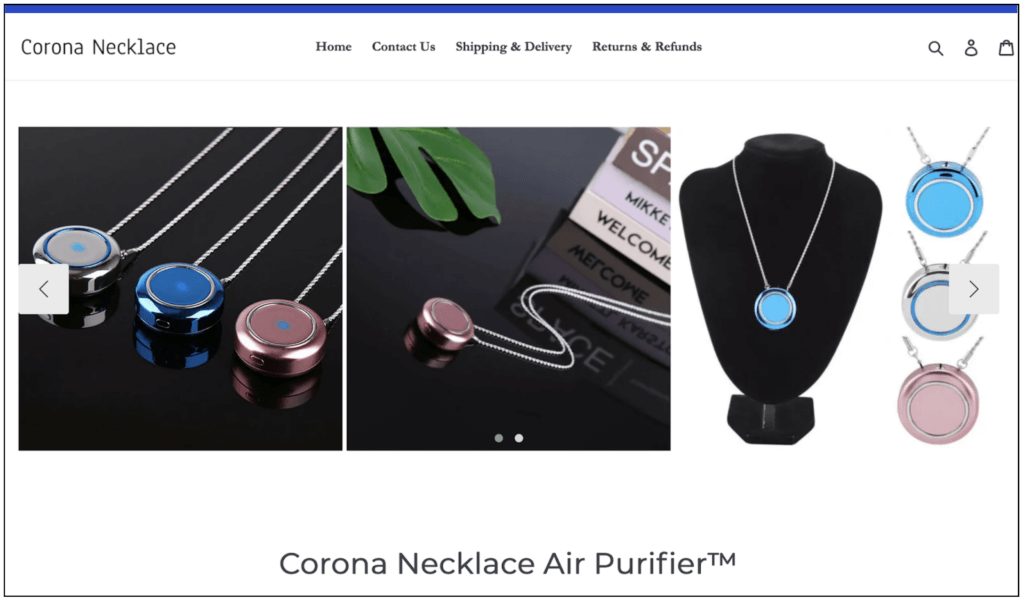
The name and description of an air purifying necklace suggest it is intended to prevent COVID-19.
LegitScript has observed some services whose marketing claims may put them at an elevated risk for regulatory scrutiny. For example, a practitioner of reiki, a form of alternative medicine using energy healing, is selling long-distance healing sessions to boost immunity in the midst of the pandemic.
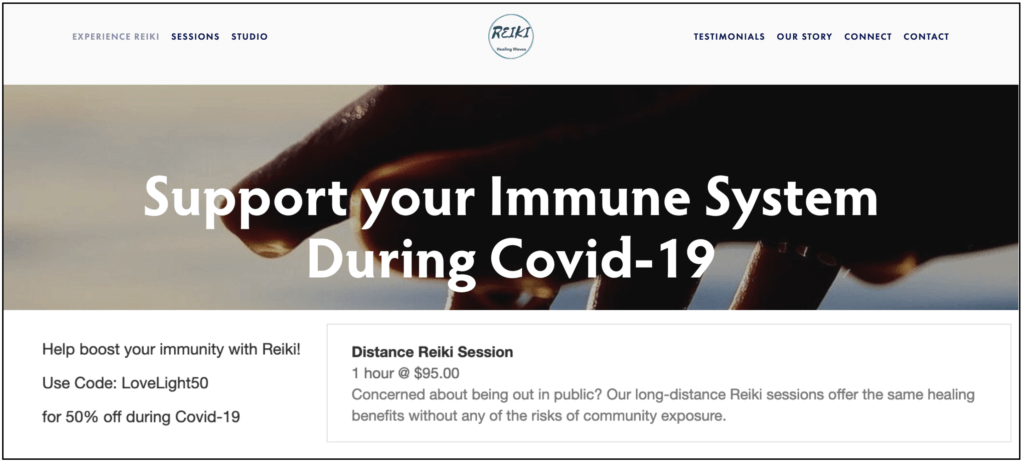
An alternative medicine provider offers immunity-boosting sessions marketed in the context of the pandemic.
Have you seen a website or a seller on an e-commerce platform engaged in price gouging, scams, or other problematic behavior related to the coronavirus outbreak? Let us know by reporting the website.




